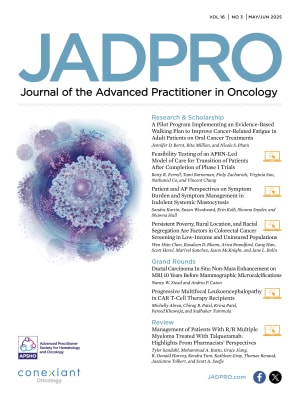Abstract
Gastrointestinal stromal tumors (GISTs) are considered rare, yet they represent the most common sarcomas of the gastrointestinal tract. The development of tyrosine kinase inhibitors (TKI) for the treatment of GISTs changed the way we treat patients and has greatly impacted outcomes. However, most patients who initially benefit from TKIs eventually develop disease progression and require subsequent therapies. Ripretinib is a switch-control TKI approved for the treatment of adult patients with advanced GIST who received prior treatment with three or more TKIs, including imatinib. Our objective was to review existing treatment options for patients with advanced GIST, focusing on management optimization for heavily pretreated patients receiving ripretinib. With the integration of ripretinib as a fourth-line therapy, the GIST treatment landscape continues to evolve. As the treatment paradigm becomes increasingly complex, successful management of adverse events and individualized supportive care remain crucial to maintaining effective treatment and patient quality of life. Additionally, we present a detailed case study of a heavily pretreated patient with advanced GIST who received ripretinib as fourth-line therapy. The information provided here should help inform advanced practitioners on the effective management of patients with GIST who have progressed on multiple therapies. Advanced practitioners are well positioned to provide the necessary supportive care to achieve optimal outcomes and drug compliance.







